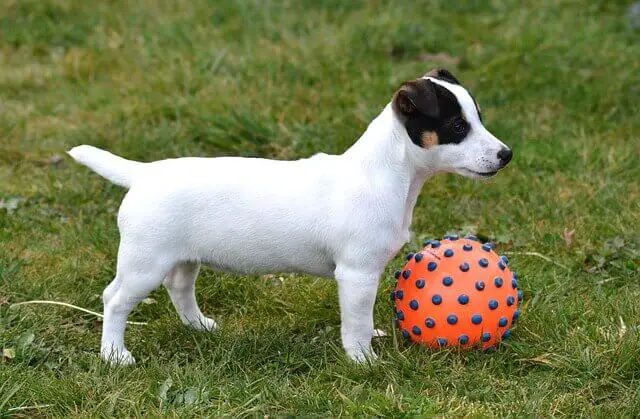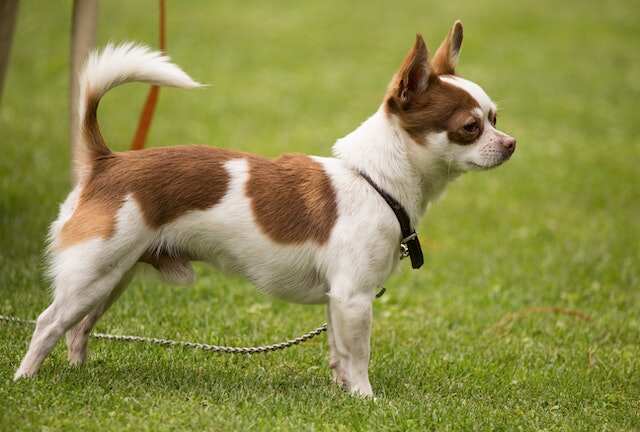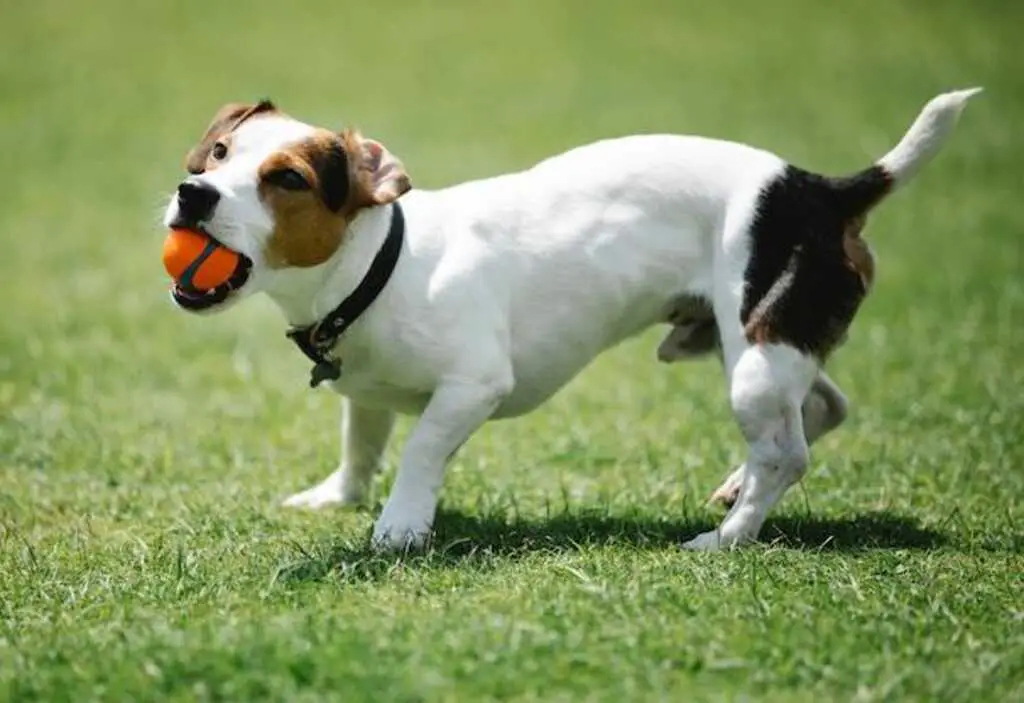Dogs are known for being intelligent animals that are capable of learning and performing a wide variety of tasks. The intelligence of dogs has been a topic of study for many years, with researchers and dog owners alike trying to understand what makes some dogs smarter than others.
However, when it comes to small dogs, there is often a misconception that they are less intelligent than their larger counterparts. This article aims to dispel this myth and explore the question, “Are small dogs smart?”
- Definition of Small Dogs
- Overview of Intelligence in Dogs
- Thesis Statement: Despite their size, small dogs can be just as intelligent as larger breeds.
- Small Dog Breeds and Their Intelligence
- Small Dogs and Problem-Solving Skills
- Training Small Dogs for Intelligence
- Conclusion
- FAQs: Are Dogs Smart
- Are small dogs as intelligent as larger breeds?
- Which small dog breeds are known for their intelligence?
- Do small dogs learn commands and tricks easily?
- Can small dogs be trained for advanced tasks or jobs?
- Do small dogs have good problem-solving skills?
- Are small dogs more difficult to house train compared to larger breeds?
- Do small dogs have a higher tendency to bark excessively?
- Are small dogs good with children and other pets?
- What activities can keep small dogs mentally stimulated?
- How can I enhance the intelligence of my small dog?
Definition of Small Dogs
Small dogs refer to breeds that typically weigh less than 22 pounds (10 kg) as adults. These breeds often have smaller physical features such as shorter legs and smaller heads compared to larger breeds.
Some examples of small dog breeds include Chihuahuas, Pomeranians, Yorkshire Terriers, and Shih Tzus.

Overview of Intelligence in Dogs
Intelligence in dogs refers to their ability to learn from experiences, solve problems, and adapt to new situations. It is important to note that intelligence in dogs can manifest in different ways depending on the breed and individual personality traits.
For example, some dog breeds are better at performing certain tasks such as herding or guarding, while others may excel at obedience training or agility competitions.
Researchers have attempted to measure canine intelligence using various methods, such as IQ tests or problem-solving tasks. However, these methods have been criticized for not fully capturing the range and complexity of canine intelligence.
Thesis Statement: Despite their size, small dogs can be just as intelligent as larger breeds.
Despite common misconceptions about the intelligence of small breed dogs, research has shown that they are just as capable of learning complex commands and adapting to new situations as larger breed dogs.
Size does not necessarily dictate a dog’s intelligence, as other factors such as genetics and training play a role in shaping their cognition.
In the following sections, we will explore the intelligence of small breeds in more detail and provide examples of how they have demonstrated their intelligence.
Small Dog Breeds and Their Intelligence
Small dog breeds can often be overlooked in terms of their intelligence due to their size. However, these pint-sized pups can surprise you with their cognitive abilities.
While it is true that some breeds are more intelligent than others, there are many small breeds that have proven themselves to be highly intelligent.
Comparison of intelligence levels among small dog breeds
Some of the most intelligent small dog breeds include the Poodle, Papillon, and Shetland Sheepdog. In terms of intelligence, these dogs are often ranked as high as larger breeds like the Labrador Retriever or Border Collie.
However, it’s important to note that not all small dogs are created equal when it comes to brainpower. For example, a Chihuahua may not be considered one of the smartest breeds due to its stubborn nature and difficulty with training.
On the other hand, a Jack Russell Terrier is known for being highly trainable and excelling in activities such as agility courses. It’s essential to research each breed thoroughly before assuming they will excel in certain areas.
Examples of highly intelligent small dog breeds (e.g., Poodle, Papillon)
The Poodle is one of the most well-known intelligent small dog breeds; they come in three sizes: standard (the largest), miniature (medium-sized), and toy (the smallest). This breed has a reputation for being smart and easy to train when compared to others.
They’re athletic dogs who excel at obedience competitions or hunting activities. Another example is the Papillon breed that specializes in agility training!
These little dogs have excellent problem-solving skills and can quickly adapt under pressure. They’re also known for being very social animals who love human interaction.
Discussion of factors that contribute to a small dog’s intelligence (e.g., genetics, training)
The intelligence of a small dog can be determined by various factors, including genetics and training. In terms of genetics, some breeds are predisposed to being smarter than others due to their lineage. For example, the Poodle is known for having a long line of intelligent ancestors.
Training also plays a significant role in developing a small dog’s intelligence. It’s essential to provide them with adequate socialization from an early age and engage them in mental stimulation activities regularly.
You can train your small dog through positive reinforcement methods like clicker training or teaching them new tricks during playtime. Various small dog breeds have proven themselves to be highly intelligent despite their size.
The Poodle and Papillon are just two examples of intelligent breeds that excel in problem-solving skills and obedience training.
Factors such as genetics and training contribute significantly to the development of a small breed’s cognitive abilities, so it’s important to consider these factors before adding any canine companion into your life!

Small Dogs and Problem-Solving Skills
Understanding Problem-Solving Skills in Dogs
Dogs have an incredible ability to solve problems, and it is one of the key traits that make them valuable companions. Problem-solving involves the use of cognitive processes to identify, analyze, and solve a problem. It requires a combination of intelligence, curiosity, memory, and creativity.
Research has shown that dogs are capable of complex problem-solving tasks that involve both physical and cognitive skills. For example, dogs have been observed using tools to obtain food rewards, navigating mazes to find hidden objects, and even learning how to solve puzzles with variable levels of difficulty.
Problem-solving skills are particularly important for working dogs such as police dogs or search-and-rescue dogs. These dogs need to be able to quickly identify problems or obstacles in their environment and find ways around them in order to perform their jobs effectively.
Examples of Small Dogs’ Problem-Solving Abilities
Contrary to popular belief, small dogs are just as capable as large breeds when it comes to problem-solving skills. In fact, many small dog breeds are known for their intelligence and ability to learn quickly. One example is the Miniature Schnauzer – a small breed with a big brain!
These dogs have been trained for various tasks such as search-and-rescue missions due to their exceptional problem-solving abilities. They can also be trained for tricks such as opening doors or retrieving specific items upon command.
Another example is the Yorkshire Terrier – while these may be small in size they have shown exceptional aptitude for solving puzzles and navigating obstacle courses.
Their high-energy nature makes them particularly suited for agility training, where they excel at weaving through poles or jumping over obstacles.
The Correlation Between Size & Problem-Solving Skills
There is no scientific evidence supporting the notion that larger breeds possess better problem-solving skills than smaller ones. In fact, research has shown that the size of a dog has little to do with its cognitive abilities.
While breed-specific traits may play a role in intelligence, training, and environmental factors have a more significant impact on the development of a dog’s problem-solving skills.
Therefore, it is important to recognize that small dogs can be just as intelligent and capable as larger breeds in terms of problem-solving skills. With proper training and care, small dogs can excel at various tasks and make great companions for people looking for smart pets.
Training Small Dogs for Intelligence

Small dogs may be just as intelligent as larger breeds, but they often require more training to reach their full potential. Without proper training, a small dog’s intelligence may go unrecognized and unutilized.
Training small dogs for intelligence is crucial to help them develop their mental capacity and enhance their problem-solving skills.
Importance of training for a dog’s intelligence
Training not only helps the dog learn and perform desirable behaviors but also stimulates their brains. Mental stimulation is essential to develop a dog’s cognitive abilities, memory, and learning capacity.
It can help keep the dog from getting bored or anxious, alleviating destructive behavior such as chewing or barking excessively.
With proper training methods, a small dog can learn complex commands or tasks that may seem impossible for its size. Training also helps improve communication between you and your furry friend, strengthening the bond between you both.
Techniques for training small dogs
Positive reinforcement is the most effective technique for training any dog breed, including small ones. Rewarding desired behavior with treats or verbal praise will motivate your pet to repeat it in the future.
Punishment can be emotionally harmful and lead to fearfulness or aggression in your furry friend. Short sessions (around 10-15 minutes per day) are usually better than extended ones because they keep the animal focused on the task at hand without getting bored or frustrated.
Starting with simple commands such as “sit” or “stay” before moving onto more challenging ones ensures that your pet doesn’t get overwhelmed.
It is also essential to understand that each animal learns at its own pace; patience and consistency are key when it comes to teaching new things effectively.
Benefits of training a small dog to enhance their intelligence
Training not only enhances a small dog’s intelligence but also provides numerous benefits that will improve its quality of life. Mental stimulation through training can help prevent age-related cognitive decline, keeping your pet’s brain active and healthy as they grow older. Training also helps small dogs develop and maintain good manners.
Proper socialization and obedience training can help prevent unwanted behaviors such as biting, jumping on people, or excessive barking. These behaviors can make it challenging to bond with your furry friend or take them out in public.
Training provides an excellent opportunity for you to spend quality time with your pet. It shows them that you care about their well-being and are willing to invest time and effort into their development.

Conclusion
Throughout this essay, we’ve explored the topic of small dogs’ intelligence and have come to the conclusion that despite their size, small dogs are just as smart as larger breed ones.
We’ve looked at various factors such as breed differences, problem-solving skills, and training techniques that contribute to their intelligence.
It’s imperative that we recognize small dogs’ intelligence, since it helps us understand them better and increases our appreciation for these wonderful companions.
Summary of Key Points
We began by defining what constitutes a small dog and discussing their overall intelligence in comparison to larger breeds. We also examined specific smaller breeds known for their smarts, like the Poodle and Papillon.
Next, we discussed how smaller dogs have demonstrated impressive problem-solving skills in various situations. We went through some training techniques appropriate for enhancing a small dog’s intellect.
The Impact on Perception
The perception of smaller breed dogs has long been one of cuteness, but not necessarily brains. Many people associate small dogs with being yappy or high-maintenance, without considering their potential cognitive abilities.
By dispelling this myth about the mental capability of smaller dog breeds, this essay seeks to alter the perception people have about these furry companions positively.
Final Thoughts
It’s time to recognize that smaller breed dogs can be just as intelligent as larger ones! By acknowledging and celebrating this fact, we provide new opportunities not only for our relationship with our furry friends but also within society at large.
Small dog owners could feel proud to point out how clever their pets can be when interacting with others or discussing canine intelligence topics in general conversations or online forums.
Furthermore, by breaking down stereotypes about smaller breeds’ intellectual capacity – often perpetuated through media portrayals – we can help foster a more inclusive world where all types of animals are valued equally based on their unique qualities!
FAQs: Are Dogs Smart
Are small dogs as intelligent as larger breeds?
Yes, intelligence varies among individual dogs, regardless of size. While small dogs may not excel in certain tasks like herding, they can still be smart and trainable in their own ways.
Which small dog breeds are known for their intelligence?
Certain small dog breeds, such as the Poodle, Border Collie, and Shetland Sheepdog, are recognized for their high intelligence and trainability. However, intelligence can vary within each breed.
Do small dogs learn commands and tricks easily?
Yes, small dogs are generally quick learners and can easily pick up commands and tricks. Consistent training, positive reinforcement, and patience are key to their successful training.
Can small dogs be trained for advanced tasks or jobs?
Although small dogs may not be commonly seen in advanced tasks like search and rescue or herding, they can excel in other areas, such as obedience, agility, and even therapy work.
Do small dogs have good problem-solving skills?
Small dogs can exhibit good problem-solving skills, especially when mentally stimulated and provided with interactive toys or puzzles. Their size does not necessarily limit their ability to think and solve problems.
Are small dogs more difficult to house train compared to larger breeds?
House training difficulty can vary among individual dogs, regardless of size. Consistent and patient house training methods can help small dogs become just as successful in this aspect as larger breeds.
Do small dogs have a higher tendency to bark excessively?
Some small dog breeds have a tendency to bark more frequently than others. However, proper socialization, training, and addressing the underlying causes can help manage and minimize excessive barking.
Are small dogs good with children and other pets?
Small dogs can be great companions for children and other pets when properly socialized and trained. However, it’s essential to supervise interactions and teach both children and dogs appropriate behavior.
What activities can keep small dogs mentally stimulated?
Engaging small dogs in activities like puzzle toys, obedience training, interactive games, and scent work can provide mental stimulation and prevent boredom, contributing to their overall well-being.
How can I enhance the intelligence of my small dog?
To enhance your small dog’s intelligence, provide regular mental and physical exercise, engage in positive training sessions, introduce new challenges, and offer interactive toys or treat-dispensing puzzles.


